6 ways birds can benefit your backyard – and boost your wellbeing
From keeping pests at bay to pollinating our plants, birds in the backyard give as much as they take
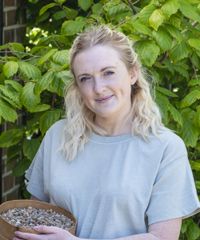
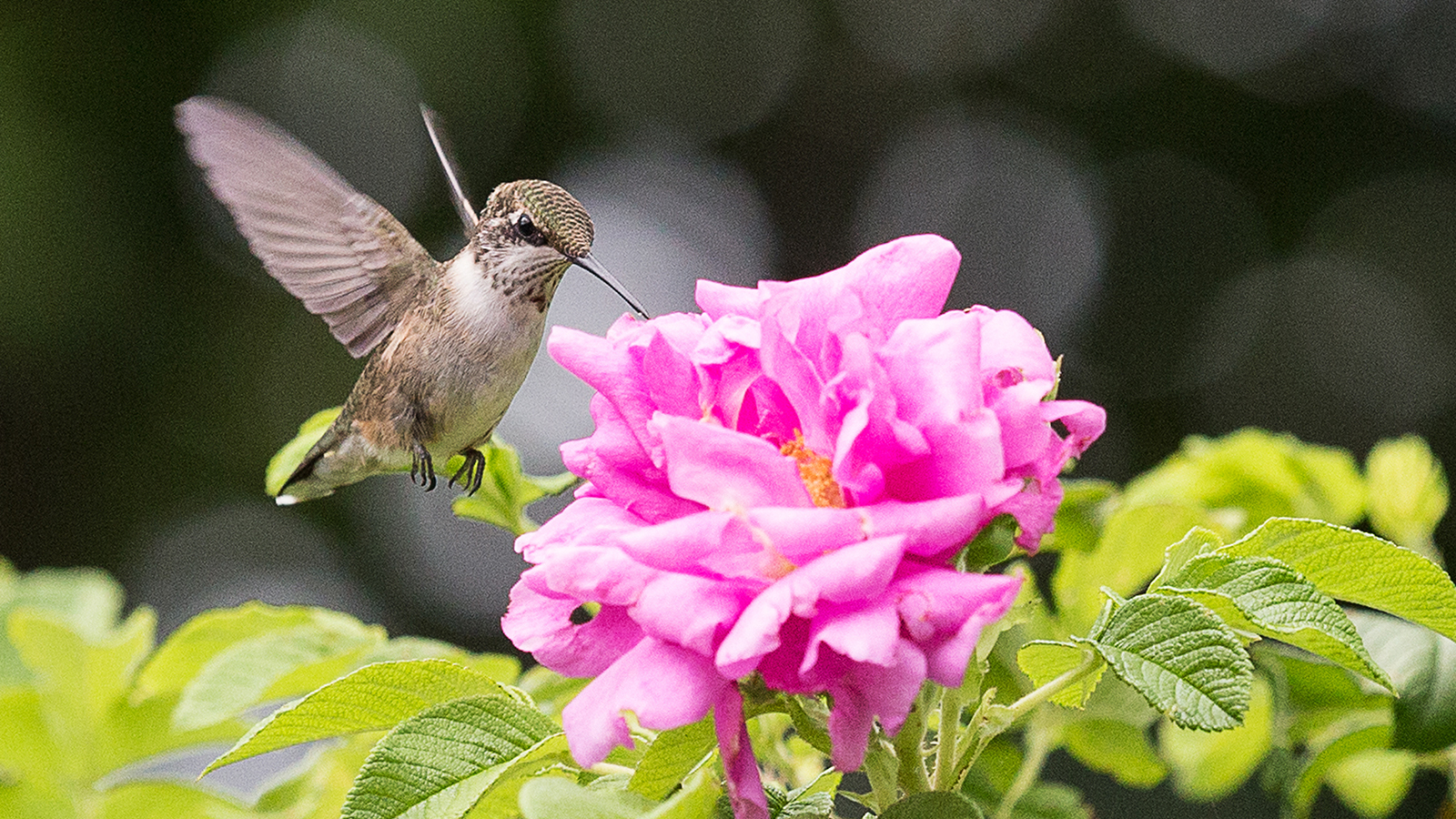
Design expertise in your inbox – from inspiring decorating ideas and beautiful celebrity homes to practical gardening advice and shopping round-ups.
You are now subscribed
Your newsletter sign-up was successful
Want to add more newsletters?

Twice a week
Homes&Gardens
The ultimate interior design resource from the world's leading experts - discover inspiring decorating ideas, color scheming know-how, garden inspiration and shopping expertise.

Once a week
In The Loop from Next In Design
Members of the Next in Design Circle will receive In the Loop, our weekly email filled with trade news, names to know and spotlight moments. Together we’re building a brighter design future.

Twice a week
Cucina
Whether you’re passionate about hosting exquisite dinners, experimenting with culinary trends, or perfecting your kitchen's design with timeless elegance and innovative functionality, this newsletter is here to inspire
For many of us, a backyard isn't complete without birds. Bird feeders, baths and houses are as commonplace in garden centers as any outdoor living staple.
Watching and listening to the birds is a relaxing and joyful way to pass time. And whilst we watch, birds are hard at work, playing a vital role in balancing the ecosystems of our backyards and neighborhoods.
'Birds are obviously aesthetically pleasing, but that is just one kind of ecosystem service that they provide a wildlife garden for free,' shares Dr Steve Roels, Kirtland’s Warbler Program Director at the American Bird Conservancy.
'Other examples include plant pollination, pest control, and distribution of seeds into areas where plant communities have been damaged or destroyed,' he says.
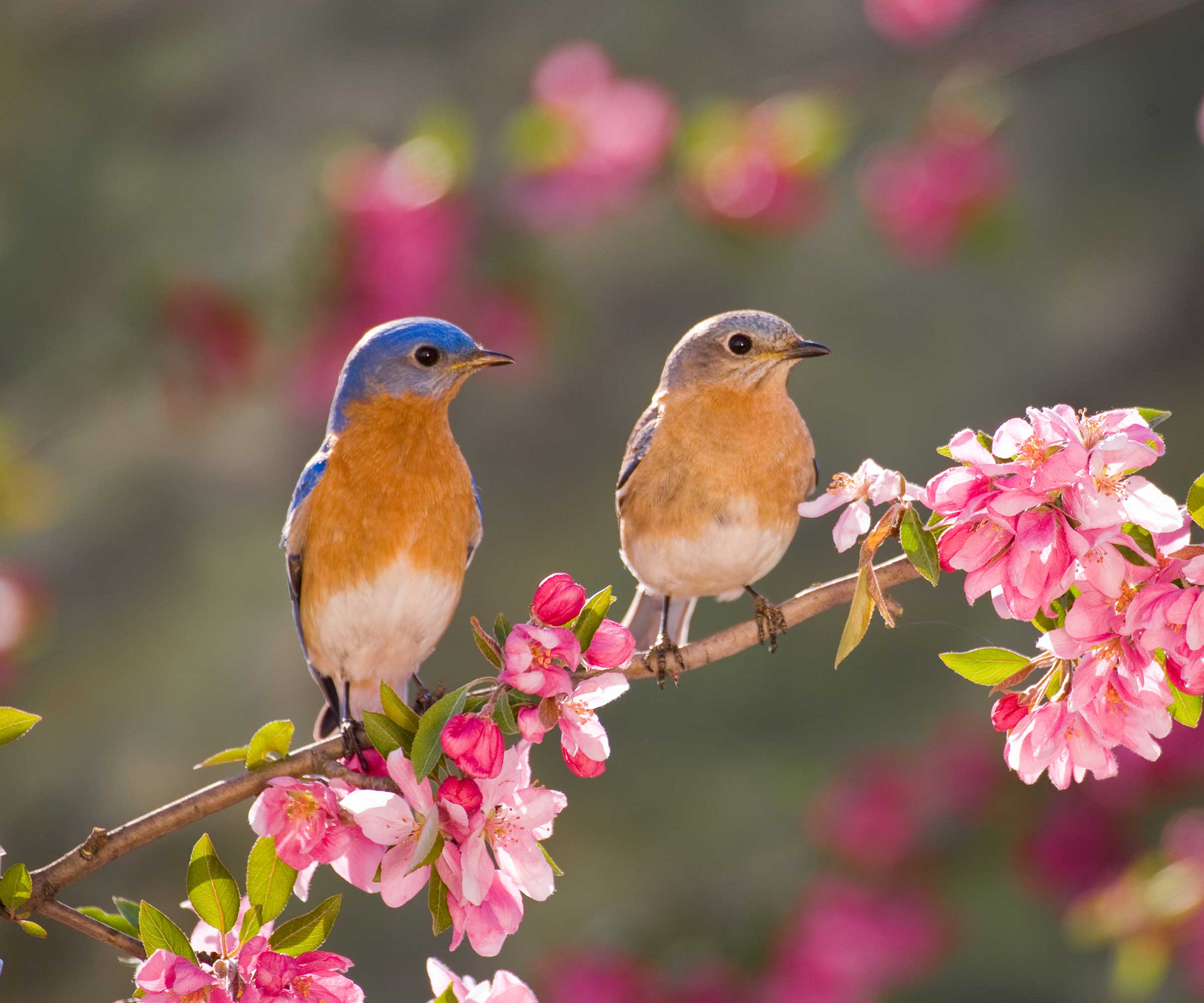

Dr Steve Roels is the Kirtland’s Warbler Program Director for American Bird Conservancy. He earned his PhD from Michigan State University, where he studied the recovery of bird communities in tropical forest restorations. His scientific work has been published in peer-reviewed journals including Avian Conservation and Ecology; Restoration Ecology; and Agriculture, Ecosystems, and Environment.
6 benefits of welcoming birds into our backyards
To truly feel the benefits of birds in the backyard, Marlene Pantin advises that growing native plants for birds is important.
'It is important to provide food for birds by growing plants that are native to your local region,' says Marlene Pantin, Plants for Birds partnerships manager with the National Audubon Society.
'Native plants are those that birds co-evolved with over time and are well-adapted to their local ecological area. They also require less water and are simpler to grow than non-native plants,' she says.
Design expertise in your inbox – from inspiring decorating ideas and beautiful celebrity homes to practical gardening advice and shopping round-ups.
1. Birds pollinate our plants

'There are important bird species that actively contribute to pollination across the United States,' says Marlene.
'In the eastern US, the ruby-throated hummingbird is key to flower pollination, and in southwestern states a dozen species of hummingbirds such as Anna’s hummingbirds feed on nectar and transport pollen,' she says. So attracting hummingbirds will help create a thriving self-sufficient garden.
'Other birds such as orioles also play a role in pollination during the fall season when they rely more heavily on the nectar from fruit trees as natural bird feeders to supplement their diets.
Some dove species also contribute to pollinating plants, in particular the western white-winged dove. Which feeds on flowering saguaros for nectar while distributing pollen as they move from flower to flower,' she says.
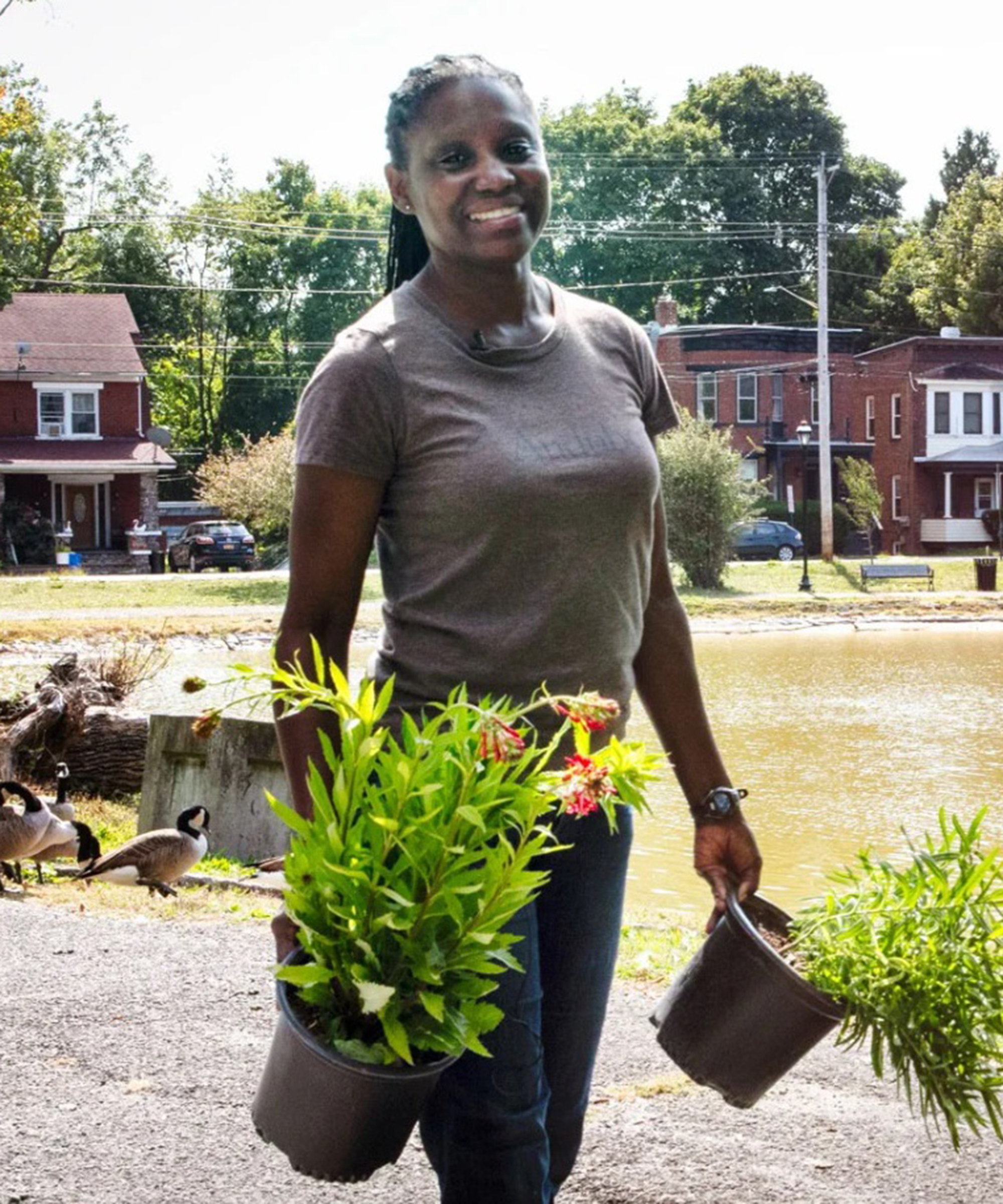
Marlene supports the National Audubon Society network in advocacy, municipal engagement, and building strategic partnerships to advance their Plants for Birds program and create bird-friendly communities across the country.
2. Birds help keep weeds at bay
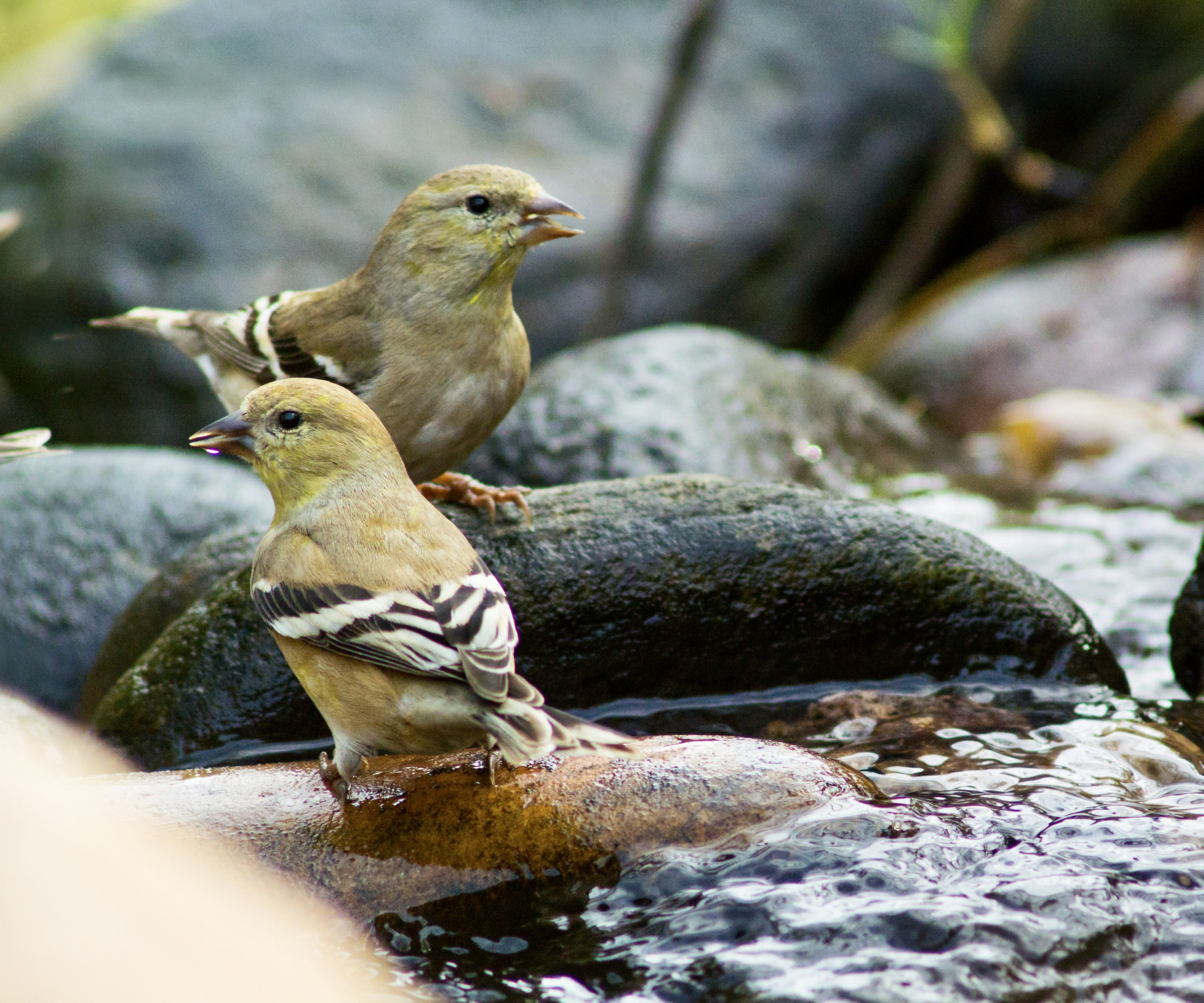
'Birds such as sparrows and finches are seed-eating experts that can consume vast quantities of weed seeds,' Steve Roels tells us.
'I was thankful this fall to see dozens of sparrows around my backyard vegetable garden, gobbling up seeds from pesky annual weeds. Consider the ability of a single weed to produce hundreds or even thousands of seeds and it is pretty clear we would be overrun in just a couple years without all the wildlife that eats those seeds,' he says.
When it comes to other forms of how to get rid of weeds in our backyard, Marlene Pantin advises us not to make the biggest wildlife garden mistake of all and use pesticides. 'They can harm birds and reduce their ability to help you create a blooming, biodiverse garden space,' she says.
3. They help keep pests under control
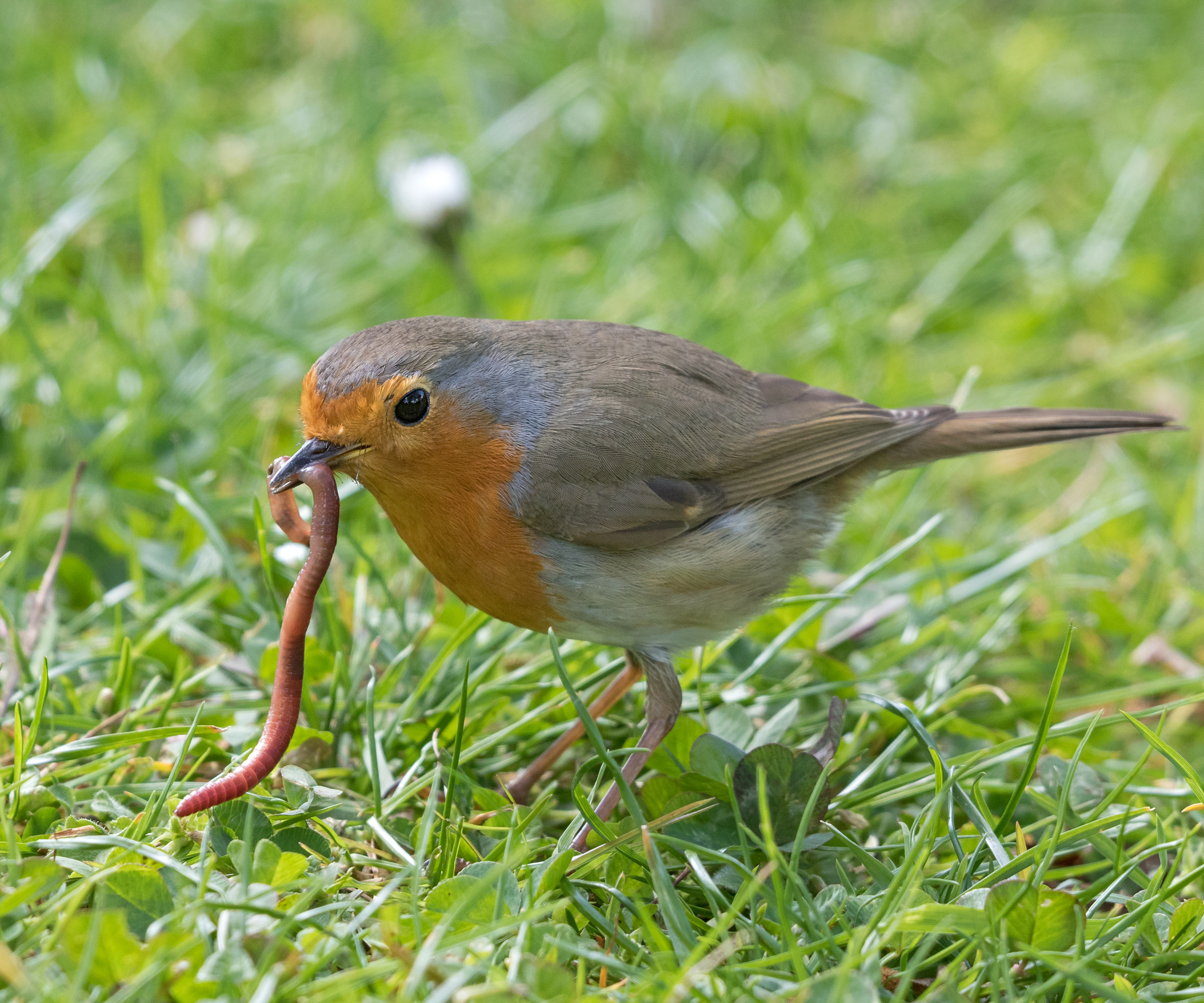
'Birds are wonderful at backyard pest control because they feed on a variety of insects and other bugs you may not want in your yard,' Marlene tells us.
'Birds eat worms, beetles, snails, crickets, mosquitoes, and ticks, which all feed on stems and plant leaves and roots in your garden,' she says.
Steve Roels makes the point that many scientific studies have demonstrated that birds can create ripples through the food web called ‘trophic cascades’.
'These are typically caused by insect-eating birds that consume so many insects, they measurably reduce the amount of damage that insects cause to desirable plants,' he says.
'Trophic cascades have been found in some of our favorite crops, including shade-grown coffee and cacao, so thank the birds next time you sip your morning brew or nibble on some chocolate. Birds are likely providing similar pest-control services in our backyard vegetable gardens and native plant landscaping,' he adds.
4. They're good for our wellbeing
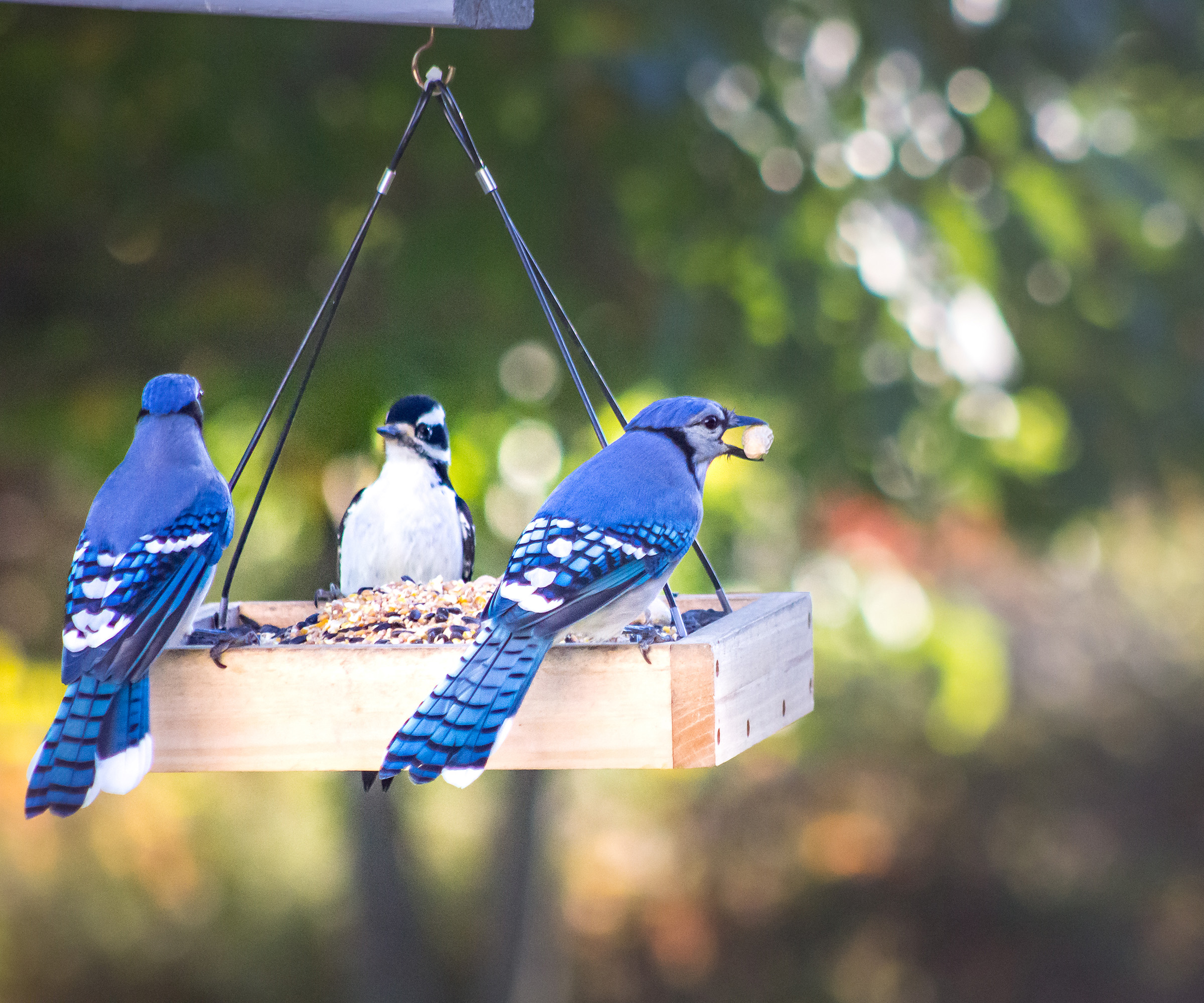
'Birdwatching in your backyard can help reduce stress and improve well-being and bring an appreciation of the environment to your space,' says Marlene.
Marlene's colleague at Audubon, Jill U Adams' article Birding With Benefits: How Nature Improves Our Mental Mindsets cites studies which suggest that nature and gardening therapy has benefits to both our mental and physical health.
Jill highlights the fact that watching birds helps to restore our focus, slow our heart rates and therefore reduce levels of stress hormones.
5. Birds can benefit the wider neighborhood
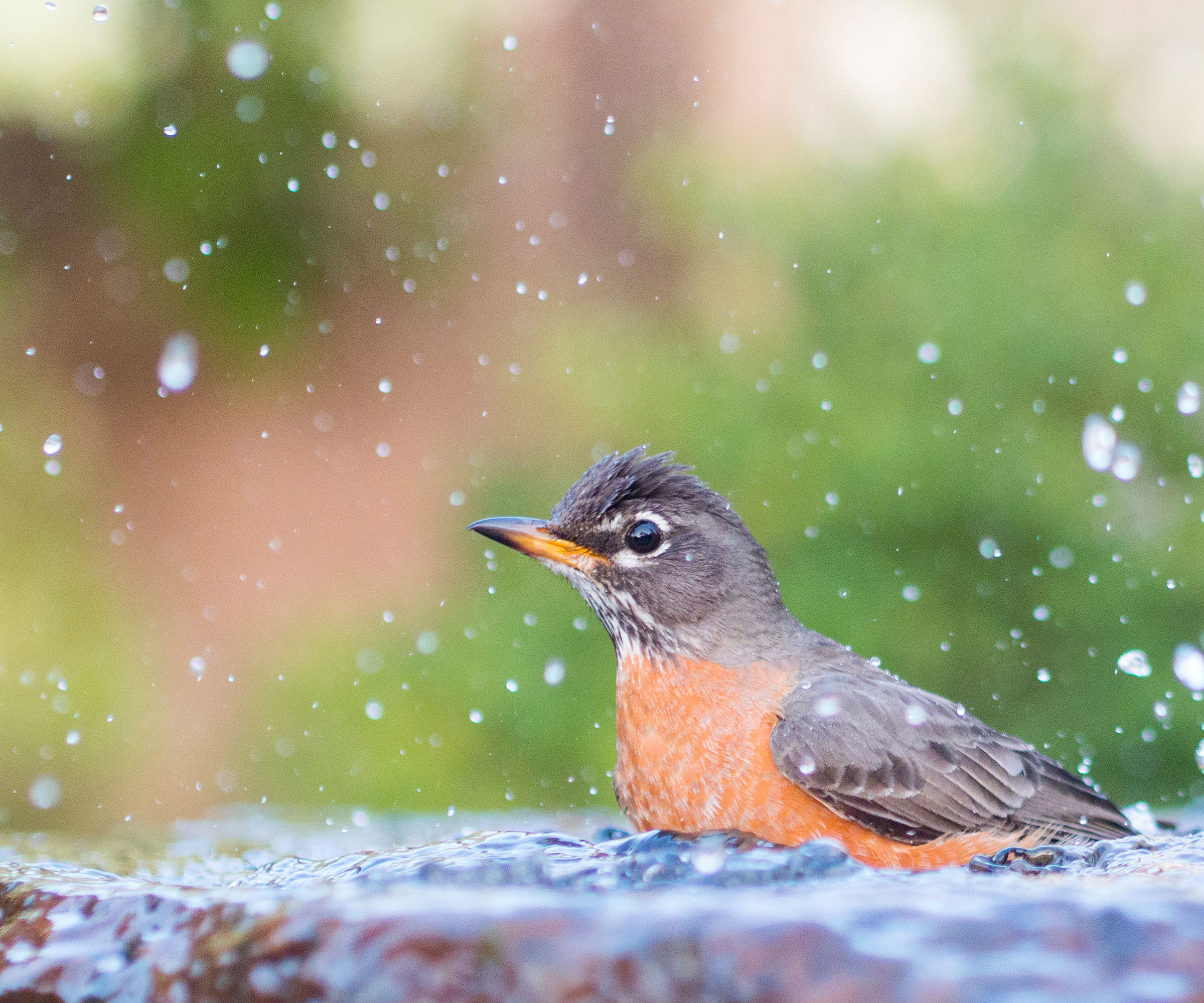
'While the average backyard may not seem to matter that much, it is an integral part of the neighborhood ecosystem,' says Steve Roels.
'A backyard managed for wildlife could be an oasis in a suburban biological desert of lawns and pavement. It could be critical to an individual migratory bird that returns year after year, specifically to your backyard to refuel during an epic journey across thousands of miles,' he says.
'Making your bird-friendly backyard complete with native planting and bird houses a showcase can inspire friends and neighbors to make changes in their backyards too.'
6. They gives us an appreciation for nature
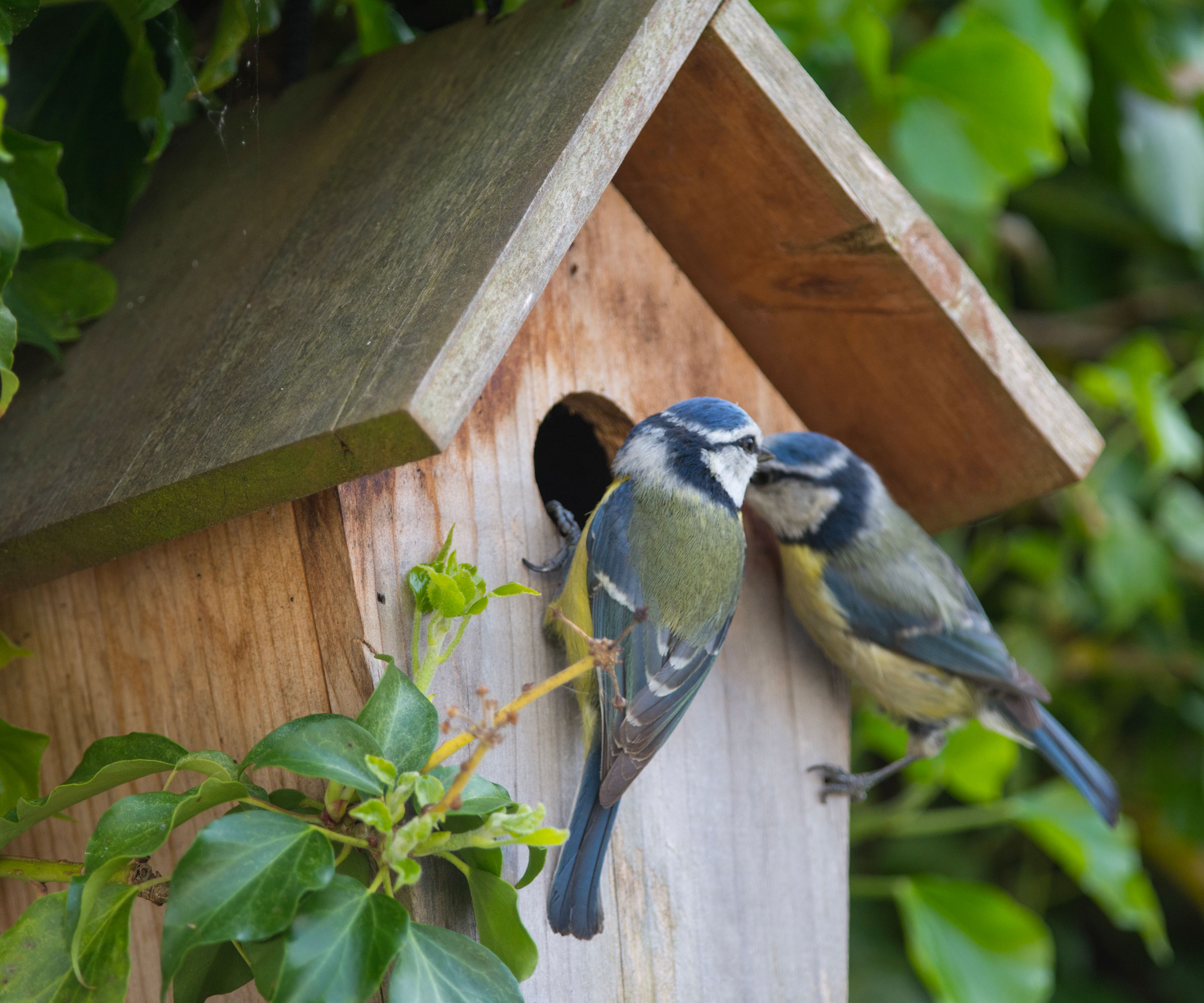
'Creating an outdoor space with native plants will provide vital habitat for birds and help them adapt and survive in the face of climate change. Caring for birds can teach people of all ages to respect the environment and gain a deeper appreciation for nature,' says Marlene Pantin.
FAQs
Can birds be bad for the backyard?
'Although birds can control some weed species, they can also spread invasive plants by eating fruit in one location and depositing the seeds in another,' says Dr Steve Roels, Kirtland’s Warbler Program Director at American Bird Conservancy.
'People should become familiar with the common invasive plants in their area and how to control them. Hedgerows and other areas where finches, waxwings, thrushes, or other fruit-eating birds congregate are especially prone to invasive plant introductions,' says Steve.
'Some birds, especially larger kinds like waterfowl or wild turkeys, could create a mess if they are attracted in large numbers. But I have found the biggest downside to my backyard birds is that they distract me from getting work done,' he adds.
Overall, having birds in our backyards carries many benefits. Birds add beauty and excitement to gardens, and they are necessary for the pollination and cross-pollination that ensures plants produce seeds and fruits.
Just be sure to create safe havens for feathered friends and protect garden birds from cats and other harmful elements. You should also explore ways to help birds during breeding season.
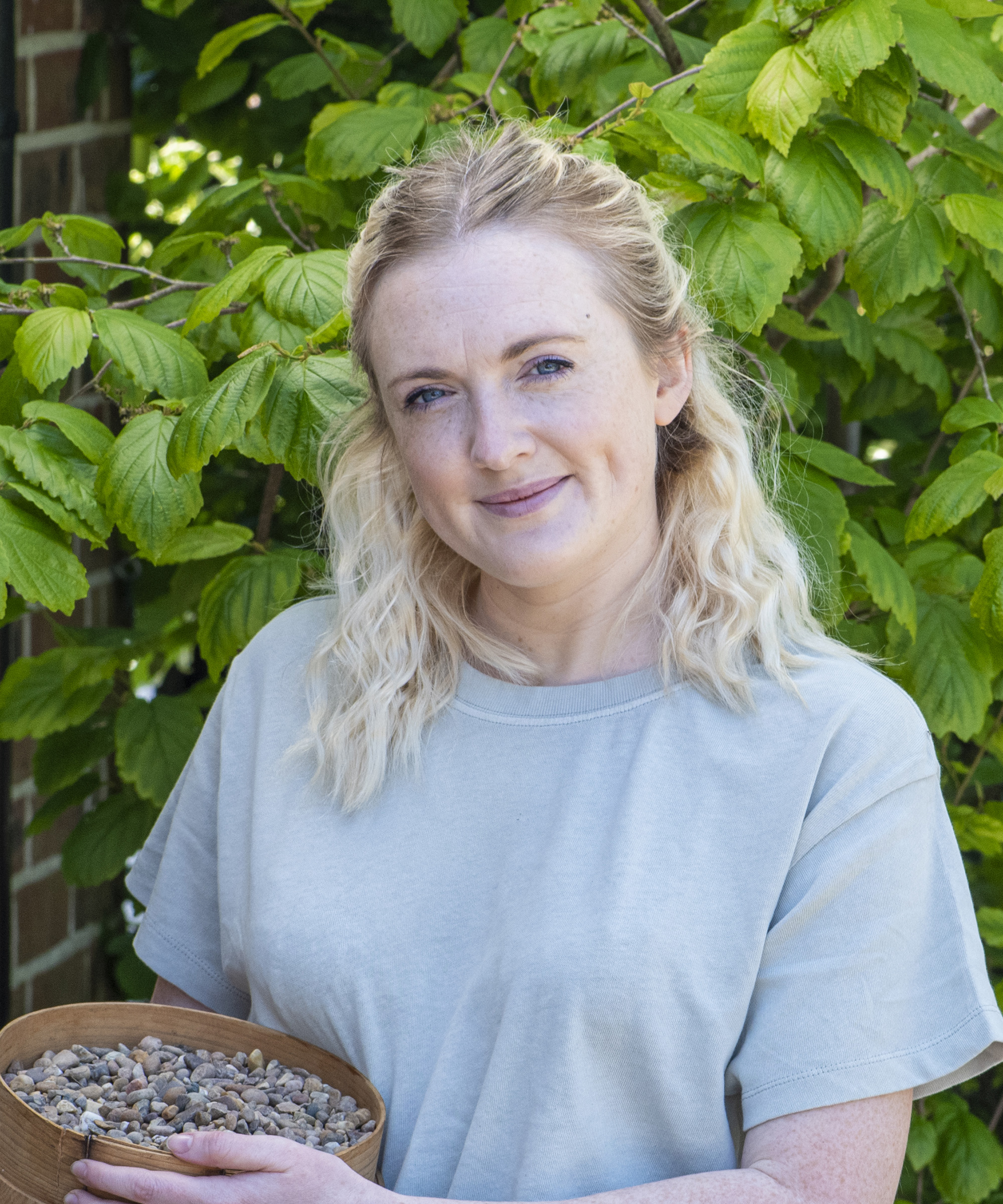
Teresa was part of a team that launched Easy Gardens magazine two years ago and edited it for some time. Teresa has been a Gardens Editor at Homes & Gardens, Country Homes & Interiors and Living Etc magazine since 2020 and has developed close working relationships with top garden designers, and has been exposed to an array of rich garden content and expertise.